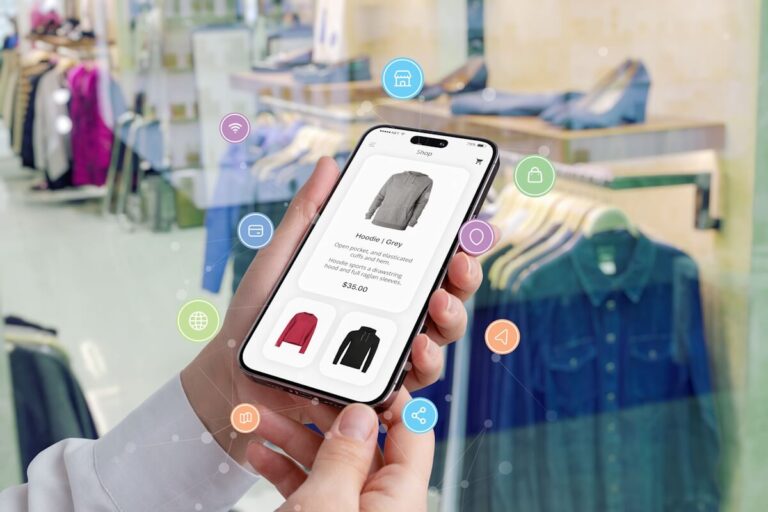In today’s digital age, the use of big data has become increasingly important in various industries, including iOS app development. Big data refers to the massive volume of structured and unstructured data that is generated by businesses on a daily basis. By effectively leveraging big data, iOS developers can gain valuable insights that can help optimize their app development process and improve user experience.
Why Big Data is Important in iOS App Development
Big data plays a crucial role in iOS app development for the following reasons:
- Personalization: Big data allows iOS developers to collect and analyze user data, such as user preferences and behaviors, in order to personalize the app experience for each individual user. By understanding user preferences, developers can tailor the app to meet the specific needs and preferences of their target audience. This can lead to increased user engagement and satisfaction.
- Performance Optimization: Big data analytics can help developers identify performance issues within the app, such as slow loading times or crashes, and address them promptly. By analyzing user data and app usage patterns, developers can optimize the app’s performance to ensure a seamless user experience. This can result in higher user retention rates and improved app ratings.
- Decision Making: Big data provides developers with valuable insights that can help inform decision-making processes, such as feature prioritization and resource allocation. By analyzing user data and market trends, developers can make informed decisions that are based on data-driven insights. This can lead to more effective app development strategies and better overall business outcomes.
Leveraging Big Data in iOS App Development
To effectively leverage big data in iOS app development, developers can follow these key steps:
- Data Collection: The first step is to collect relevant data from various sources, such as user interactions, app usage metrics, and external data sources. Developers can use tools like Google Analytics or Mixpanel to track user behavior and collect valuable data. By collecting a wide range of data, developers can gain a comprehensive understanding of user preferences and behaviors.
- Data Analysis: Once the data has been collected, developers can analyze it to gain valuable insights that can inform their app development process. By using data visualization tools and techniques, developers can identify trends, patterns, and correlations within the data that can help optimize the app. This can lead to more targeted marketing campaigns and feature enhancements.
- Predictive Analytics: Big data analytics can also be used for predictive analytics, where developers can forecast user behavior and trends based on historical data. By using machine learning algorithms and predictive modeling techniques, developers can anticipate user needs and preferences, leading to a more personalized app experience. This can result in higher user engagement and increased app revenue.
- Optimization Strategies: Based on the insights gained from big data analysis, developers can implement optimization strategies to improve the app’s performance and user experience. This can include optimizing app features, streamlining the user interface, and enhancing app functionality based on user feedback. By continually refining and enhancing the app based on data-driven insights, developers can ensure long-term success in the competitive app market.
Insights from San Jose
San Jose, as a hub for technology and innovation, offers valuable insights into the use of big data in iOS app development. Companies in San Jose, such as Apple and Google, have been at the forefront of leveraging big data to improve their products and services. By studying the practices and strategies employed by these companies, iOS developers in San Jose can gain valuable insights into how to effectively leverage big data in their app development process.
In conclusion, leveraging big data in iOS app development is essential for optimizing app performance, personalizing user experiences, and making informed decisions. By collecting and analyzing relevant data, developers can gain valuable insights that can help improve their app development process and enhance the overall user experience. By following best practices and learning from industry leaders, iOS developers can effectively leverage big data to create innovative and successful apps. Contact us today to start building your iOS app and be a part of this exciting revolution. The possibilities are endless, and the impact is immeasurable. So let’s take on this challenge together!
FAQs:
1. Why is big data important in iOS app development?
Big data is important in iOS app development because it allows developers to personalize the app experience, optimize performance, and make informed decisions based on data-driven insights.
2. How can big data be leveraged in iOS app development?
Big data can be leveraged in iOS app development through data collection from various sources, data analysis to gain insights, and predictive analytics to forecast user behavior and trends.
3. What tools can iOS developers use for data collection?
iOS developers can use tools like Google Analytics or Mixpanel to track user behavior, collect app usage metrics, and gather data from external sources for analysis.
4. How can big data analytics help improve the user experience?
Big data analytics can help improve the user experience by identifying performance issues, personalizing the app experience for individual users, and informing decision-making processes for feature prioritization and resource allocation.










